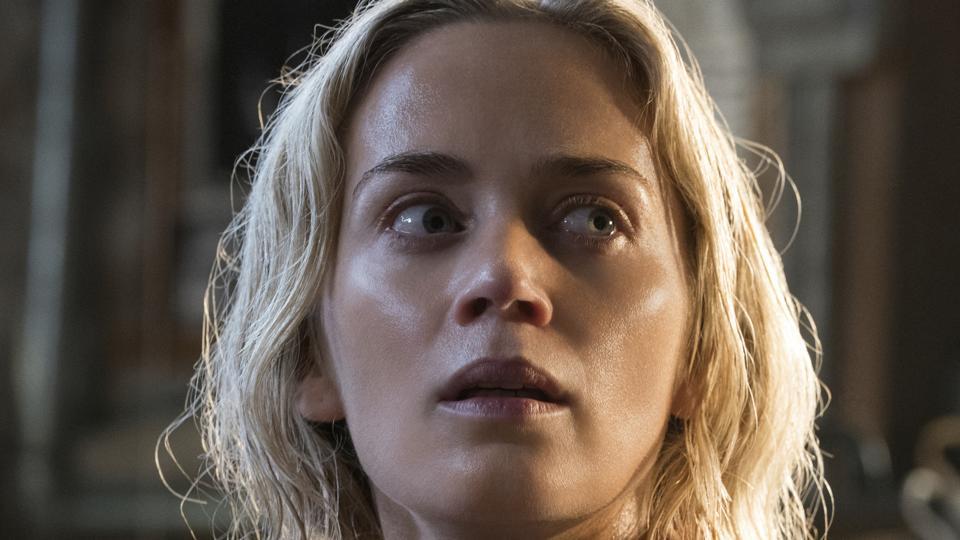For anyone forced to do the Sunday visit rounds, the concept of family life as an exercise in barely tolerable, near-silent tension is a familiar one. The pause between programme and adverts. The clacking clock hand on an ugly mantelpiece.
The latest in John Krasinski’s canny pivot from straight-to-camera GIF-ery to leading man robustness, A Quiet Place brings high-concept genre logic to family quiet time, positing a near-future in which humanity has been devastated by insectoid alien invaders, so-called ‘dark angels’, with no sight organs but a highly tuned sense of hearing, perking up at minor wallops and bangs a mile away. Krasinki directs and stars, alongside real-life wife Emily Blunt, as parents trying to protect their children in a world where decibel levels decide if you live or die.
The conceit, courtesy of writers Bryan Woods and Scott Beck, is simple and delicious, and the logic of the film immediately believable, flagged in clever little details like painted footprints as a safe guide around squeaky floorboards. Blunt and Krasinki are Lee and Evelyn, raising young kids Regan (Millicent Simmonds), Marcus (Noah Jupe) and Beau (Cade Woodward).
Regan’s deafness means the family is already, handily proficient in the low-verbal communication of sign language, half-whispers and bodily gestures that operate in place of spoken dialogue. Things get tense when the monsters are sniffing, sure, but there’s also a sense of calm, steady rhythm likely to trigger envy in stressed parents in the audience. Visual aides and soft toys, no shoes, no plates, no music without headphones. There are workarounds to cover conversations, the first verbal exchange hitting a full Act in.
A Quiet Place’s scarce economy of sound makes it one of the legitimate great shared cinema experiences of recent memory, something untranslatable to the chirping domesticity of living room Netflix. The Abbott family house, an allotment of self-sufficiency located outside of urban devastation, is regulated by restraint and careful movement. A raised voice or a dropped hot pan spell swift trouble, a certainty spelled out in an early, pitiless act of violence. Additionally, Evelyn is pregnant, the due date on the calendar blaring like a warning, their world’s intolerance of a wailing infant turbo-charging the usual childbirth anxieties. Evelyn puts stethoscopes to her belly and the tiny heart thuds like a Semtex timer.
Krasinski’s direction keeps the drama moderate and patient, indulging in the odd hoary genre trope like an expositionary newspaper headline (it’s sound, guys!), the convenient discovery of the monsters’ weakness or a lingering shot of Chekhov’s exposed nail. The psychological stress of living without sound is suggested but not unpacked: a quick running time doesn’t waste too much time with complexity, busily setting up an extended, intense peril scenario.
Lee and Evelyn are uncomplicated, devoted and practical, both Blunt and Krasinski emoting in wide-eyed close-ups. The children are good too, especially Simmonds, her father’s fruitless efforts to engineer a working hearing aide adding to her unspoken guilt (aha) and making her doubly isolated. There’s little opportunity here for verbal catharsis or a good sob (we can speculate too about the delicate practicalities of achieving orgasm).
Alongside Jeremy Dyson and Andy Nyman’s Ghost Stories, A Quiet Place makes the case for multiplex horror as clever, compact and enticing entertainment. Watching the film, you will often catch yourself wondering just how long it was since you last took a breath. Conor Smyth
A Quiet Place is out on wide release.






